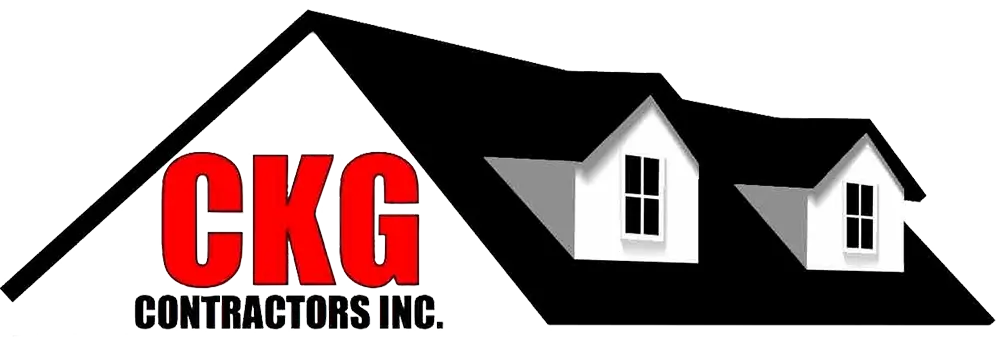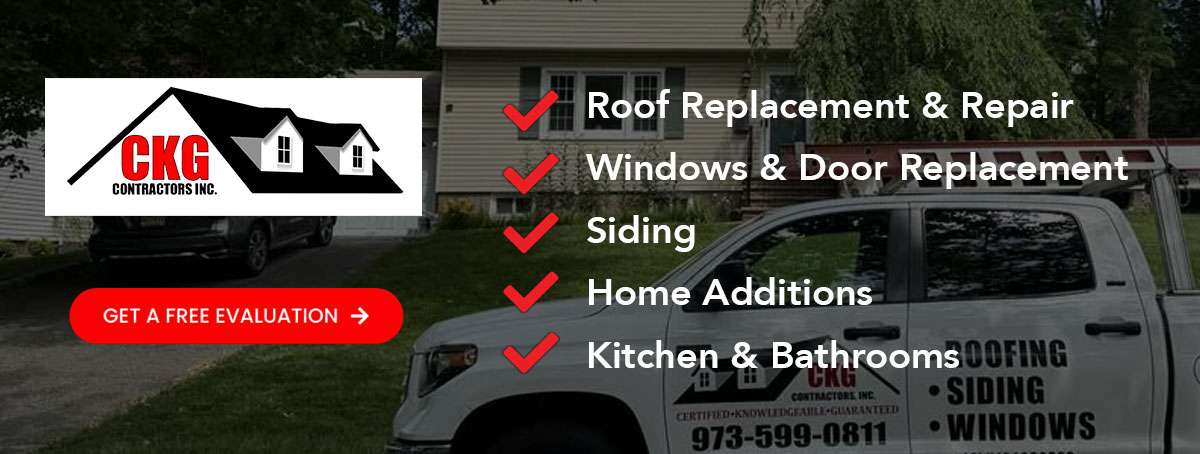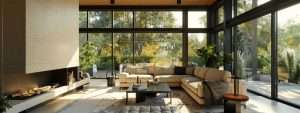
Table Of Contents:
- What Are the Most Popular Traditional Window Styles in New Jersey?
- How Do Energy-Efficient Windows Fit Traditional Window Designs in NJ?
- How to Choose the Best Windows for Historic Homes in New Jersey?
- What Are the Architectural Window Styles That Complement Classic NJ Homes?
- What Are the Benefits of Renovating NJ Homes With Traditional Window Styles?
- Where Can NJ Homeowners Find Expert Services for Traditional Window Installation?
- How Do Traditional Window Styles Impact NJ Home Renovation Projects?
Traditional New Jersey homes possess an enduring charm accentuated by carefully chosen window styles. At CKG Contractors, Inc., we blend contemporary energy innovations with classical aesthetics, ensuring each installation complements a home’s historic character while providing optimal performance. This article guides you through popular traditional window styles in New Jersey, highlighting their benefits—from the elegant double-hung windows reminiscent of early American architecture to bow and bay options offering additional light and space—all with a focus on energy efficiency and architectural harmony.
New Jersey’s historic homes demand windows that are visually appealing and compliant with modern energy standards. Homeowners increasingly seek designs that reduce heat loss in winter and keep interiors cool during summer. This necessity for both historical authenticity and energy efficiency has led many NJ homeowners to choose windows that merge old-world charm with modern materials like advanced fiberglass and vinyl, maintaining a timeless look. Understanding the intricacies of traditional designs is essential, as they not only enhance curb appeal but also contribute to energy conservation amid rising utility costs and environmental concerns.
Throughout this article, we explore key questions asked by NJ homeowners regarding traditional window styles. You will learn why double-hung windows are ideal for historic homes, how casement windows can enhance traditional architecture, and the benefits of bay, bow, arched, and custom window designs—all while discussing energy-efficient adaptations, window selection factors, and installation considerations provided by local experts.
What Are the Most Popular Traditional Window Styles in New Jersey?
Traditional window styles remain popular in New Jersey due to their heritage and proven performance. Homeowners of historic properties select designs that honor the period while incorporating modern improvements. In this section, we introduce several quintessential window types and explain their enduring appeal.
Why Are Double-Hung Windows Ideal for Historic NJ Homes?
Double-hung windows are favored among homeowners for their historical authenticity and practical functionality. Featuring two operable sashes that move vertically, they offer both aesthetic appeal and superior ventilation control, helping to balance airflow and regulate indoor temperatures. Many classic wood-framed double-hung windows have been modernized with insulating glazing units while preserving their traditional divided light appearance.
Modern upgrades include energy-efficient materials such as Low-E glass and thermally improved vinyl or fiberglass cladding. These enhancements can reduce energy consumption by up to 15% while maintaining the look required for historic profiles—from colonial to Victorian styles. Additionally, the tilt-in design simplifies cleaning of both interior and exterior surfaces, which is crucial in areas exposed to harsh weather or pollution. Local restoration projects have demonstrated that retrofitting these windows with advanced weatherstripping and double-pane glass can improve thermal insulation significantly, proving that traditional design and modern efficiency can coexist remarkably well.
How Do Casement Windows Enhance Traditional NJ Architecture?
Casement windows blend traditional aesthetics with modern performance. Hinged on one side and opening outward, they create an unobstructed pathway for airflow, offering maximum ventilation. Designed to mimic early-set sash windows, casement windows provide an authentic visual appeal with improved functionality.
Their performance benefits include a tight seal when closed, which minimizes air leakage and enhances insulation. With advancements such as Low-E coatings and argon gas fills, casement windows achieve low air infiltration rates. Their design also allows for more natural light, reducing dependence on artificial lighting. Custom grilles can be added to reflect historical decorative patterns found in colonial or Federal-style architecture. In neighborhoods with expansive views, these windows frame the surroundings beautifully while preserving a traditional design integrated with modern sealing technology.
What Makes Bay and Bow Windows a Classic Choice for NJ Homes?
Bay and bow windows are integral elements in many historic New Jersey homes. Their outward projection creates a sense of spaciousness, while adding depth and architectural interest to facades. Often serving as focal points, they break up flat wall surfaces and invite abundant natural light into interiors, creating cozy reading nooks or conversation spaces.
Designed to maximize solar gain during winter while maintaining year-round aesthetic appeal, these windows incorporate multiple angled glass panels for enhanced natural illumination and reduced indoor lighting needs. Modern thermal performance features such as insulated glazing and Low-E coatings can be paired with traditional divided light configurations, ensuring that the historical character is maintained. Local projects show that when integrated into renovations, bay and bow windows significantly boost a property’s curb appeal and interior ambiance, while also enhancing home value through increased natural light and improved airflow.
Why Choose Arched Windows for Traditional Home Renovations?
Arched windows are synonymous with classical beauty and sophistication. Their distinctive curved lines offer a soft contrast to modern angular designs and evoke an old-world charm that perfectly suits many NJ historic homes. These windows are especially effective when the architectural narrative of a building is a priority.
The gentle curve creates a dynamic interplay of light and shadow inside the home, serving as a standout design element. When paired with custom trim and period-appropriate details, arched windows enhance interior design and complement rounded motifs such as arched doorways and grand staircases. Modern improvements—in the form of energy-efficient glazing options like double or triple-pane Low-E coated glass—allow homeowners to enjoy both historical aesthetics and improved thermal performance. Retrofitting these windows with modern thermal barriers has shown energy conservation improvements of over 18%, demonstrating they are an excellent choice for combining visual appeal with functionality.
When Are Custom Window Designs Necessary for Historic NJ Properties?
Custom window designs are essential when a historic NJ property has unique architectural features that off-the-shelf options cannot address. Many older homes have non-standard dimensions, unique moldings, or bespoke details that require tailor-made solutions. Custom windows ensure that these distinct aspects remain intact while integrating modern performance features.
For properties with irregular openings or decorative transoms integral to their character, standard windows may not fit appropriately. Custom solutions can be engineered to match exact dimensions and replicate period-appropriate styles, including features like divided lites, intricate grilles, or hand-carved frames. Modern custom fabrication allows for the integration of energy-efficient technologies—such as insulated glass, advanced weatherstripping, and thermally broken frames—into windows that maintain a classic appearance. Local NJ window companies often offer comprehensive consultations to ensure the final product harmonizes with the existing architecture and meets current building codes, providing a flawless blend of heritage and modern innovation.
How Do Energy-Efficient Windows Fit Traditional Window Designs in NJ?
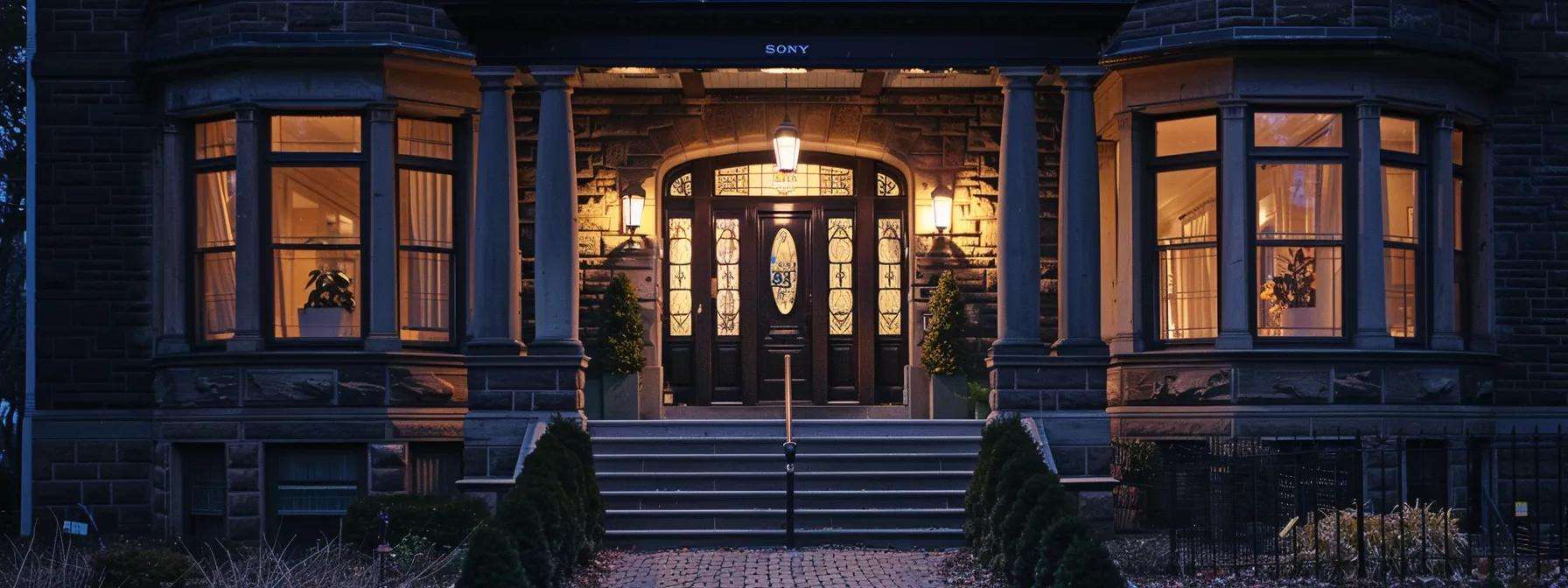
Energy efficiency is a critical consideration for homeowners renovating historic properties in New Jersey. While traditional window designs exude timeless charm, modern energy efficiency technologies can be subtly incorporated without compromising aesthetics. In this section, we explore available energy-saving features, how these windows preserve historic appearance, and which traditional styles offer the best energy performance.
What Energy-Saving Features Are Available in Traditional Window Styles?
Traditional windows now integrate several energy-saving features while retaining their classic appearance. A key innovation is Low-E glass, which reflects infrared light to minimize heat transfer, helping maintain indoor temperatures during both winter and summer. Gas fills such as argon or krypton between panes enhance insulation further.
Modern versions of traditionally styled windows benefit from improved weatherstripping and advanced frame materials. While wood was historically common, today’s frames are often made from advanced composites like fiberglass or vinyl. These materials offer enhanced thermal break properties and resist warping, rotting, or deterioration in New Jersey’s varied climate conditions.
Additional energy-saving features include double-pane or triple-pane configurations that limit conduction, convection, and radiation. Together, these technologies can reduce heating and cooling costs by up to 20%. By integrating these modern enhancements with classic designs—including double-hung, casement, bay, bow, or arched windows—homeowners can achieve both energy efficiency and historical authenticity. Advanced thermal spacers further limit heat loss at window edges, ensuring that energy performance is maximized without altering cherished aesthetics.
How Can Energy-Efficient Windows Preserve Historic Home Aesthetics?
The integration of energy-efficient windows in historic homes requires a balance between cutting-edge technology and preserving traditional appearance. Manufacturers now offer windows with profiles and divided lites that replicate period styles while incorporating double or triple-pane insulated glass and advanced framing. Many custom solutions replicate vintage detailing—such as wood grain texture, divided light patterns, and ornate trim—using modern production techniques designed for durability and low maintenance.
Replica grilles and dividers are used to ensure that energy-efficient windows remain inconspicuous in historic settings. By matching the color, texture, and finish of existing woodwork, these windows provide modern insulation benefits without compromising the historical look. The result is a seamless integration of technology and tradition, offering lower energy bills and increased property value while preserving the home’s authentic character.
Which Traditional Window Styles Offer the Best Energy Performance?
Certain traditional window styles are particularly well-suited to energy-efficient upgrades. For example, casement windows, with their superior sealing properties, minimize air infiltration and can reduce leakage by up to 30%. Modern double-hung windows benefit from upgraded sashes and enhanced weatherstripping, dramatically improving energy performance over outdated designs. Bay and bow windows, with their multi-pane configurations, allow for larger insulated surfaces, reducing overall thermal loss. Even arched windows can be produced with energy-efficient glass that meets modern standards while retaining their classic curves.
While no single style encompasses every advantage, modern enhancements—including advanced glazing, durable framing materials, and precision-engineered weatherproofing—ensure that all these traditional styles can achieve high levels of energy efficiency. The ideal choice depends on the home’s architectural design, budget, and aesthetic preferences, and local experts in historical renovations can provide invaluable guidance in selecting the best option.
How to Choose the Best Windows for Historic Homes in New Jersey?
Choosing the ideal windows for historic homes in New Jersey involves balancing historical style with modern performance features. This section discusses key factors to consider, the role of historical accuracy in window selection, and the importance of professional installation for optimal performance.
What Factors Should NJ Homeowners Consider When Selecting Windows?
When selecting windows for a historic property, homeowners should consider several key factors. The window style must complement the home’s architectural details—for example, colonial or Victorian homes often look best with double-hung or casement windows featuring divided lites. Energy efficiency, achieved through multi-pane glazing and advanced weatherstripping, is critical for reducing utility costs. Homeowners should inquire about U-factor and Solar Heat Gain Coefficient (SHGC) ratings to ensure optimal performance.
Durability and frame material are also important. Options such as vinyl, fiberglass, or thermally enhanced wood can mimic traditional materials while offering superior resistance to weathering. The initial cost, long-term maintenance, and overall return on investment should be considered, as custom windows may cost more upfront but result in significant energy savings and increased property value over time.
Maintenance requirements vary by material; while traditional wood may require regular painting and sealing, modern alternatives can offer longer intervals between maintenance cycles. Additional factors include features that enhance security, noise reduction, and overall comfort—such as laminated or tempered glass and even smart window options. Ultimately, the decision should reflect the home’s historical context, long-term energy goals, and budget constraints, with the help of professionals experienced in historic renovations.
How Does Historical Accuracy Influence Window Selection?
Preserving historical accuracy is paramount for many homeowners renovating historic properties. Windows play an essential role in defining both the exterior appearance and interior ambiance. Each window must be carefully selected to match the scale, proportion, and decorative elements of the period, while incorporating modern energy-saving enhancements.
At CKG Contractors, Inc., new windows are crafted to mirror the true period appearance using custom grilles, divided lites, and finishes that reflect the era of construction. Modern materials like vinyl and fiberglass are engineered to mimic the texture and color of aged wood while offering improved durability and reduced maintenance. Historical accuracy not only maintains cultural heritage but also positively impacts property market value and homeowner satisfaction, ensuring that the authentic character is preserved while upgrading performance.
What Role Does Professional Installation Play in Window Performance?
Professional installation is critical to ensure that even the best-designed windows perform optimally. In historic homes with uneven walls or unique configurations, expert installation guarantees proper fitting, alignment with historical details, and maximum energy efficiency. At CKG Contractors, Inc., precise installation techniques ensure that seals, weatherstripping, and structural integration are correctly executed, protecting the home against air leaks, moisture, and potential damage.
Experienced installers can also advise on necessary modifications to accommodate unique historic features and ensure compliance with local building codes and preservation standards. This expertise minimizes the risk of drafts and operational issues and safeguards warranty coverage, delivering sustained performance and peace of mind.
What Are the Architectural Window Styles That Complement Classic NJ Homes?
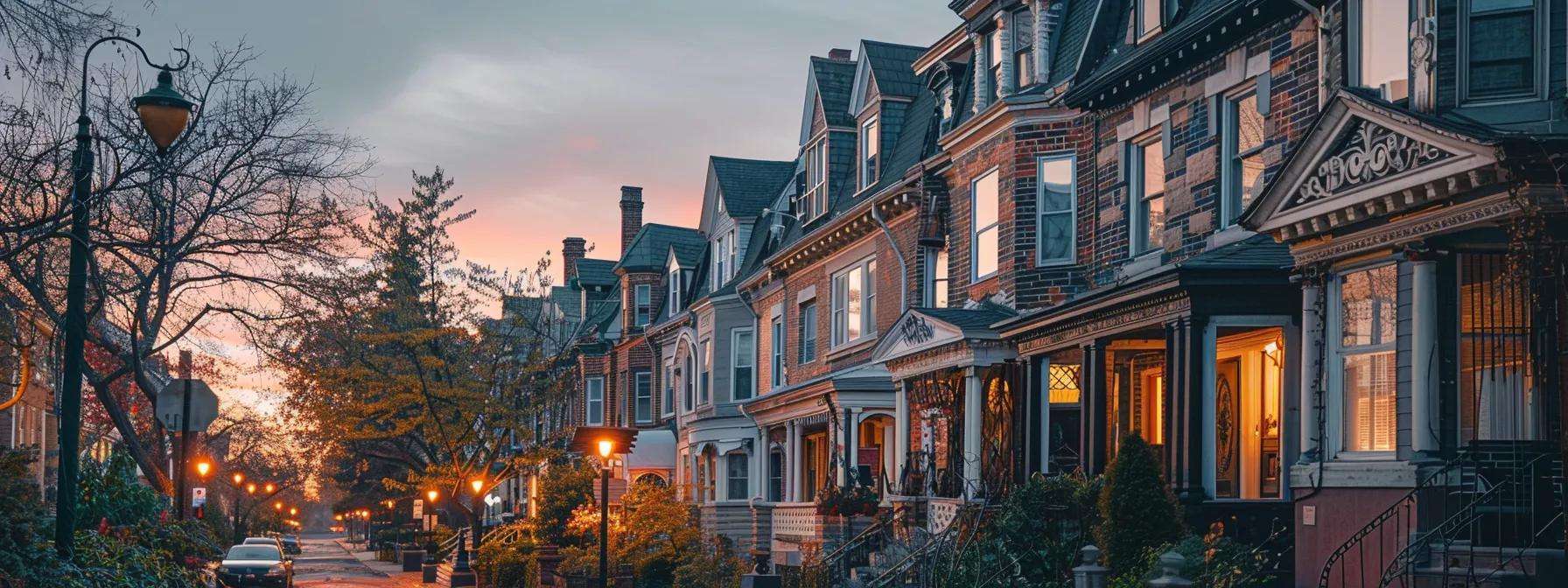
Architectural window styles contribute significantly to the character and aesthetic value of classic New Jersey homes. This section examines how various window styles reflect traditional home designs, enhance curb appeal in historic neighborhoods, and can be customized to match unique architectural details.
How Do Window Styles Reflect New Jersey’s Traditional Home Designs?
Window styles directly mirror a home’s architectural period and cultural heritage. In New Jersey, many traditional homes built during colonial, Federal, or Victorian eras feature distinct window designs—such as divided lights, muntins, and decorative trims—that continue to be highly valued. Modern reproductions incorporate these classic features, using insulated glass and advanced sealing technologies to bridge the gap between tradition and contemporary functionality.
The careful replication of historical details not only preserves the visual integrity of the home but also contributes to improved energy performance. By reflecting the craftsmanship of past eras, these windows evoke nostalgia and honor regional heritage while serving modern practical needs.
Which Window Features Enhance Curb Appeal in Historic Neighborhoods?
In historic neighborhoods, the design and quality of windows significantly impact a home’s curb appeal. Custom trim work, period-accurate grille patterns, and complementary exterior colors can elevate a home’s overall appearance. Whether installed in brick, wood, or stone facades, windows that closely match the architectural style serve as key focal points.
Attention to detailed features such as decorative muntins, hardware styled in period designs, integrated shutters, or custom awnings creates a cohesive look that enhances both visual appeal and property value. The use of high-quality, energy-efficient glass that mimics antique finishes further contributes to a thoughtful renovation that respects the past while embracing modern performance benefits.
How Can Custom Windows Match Unique Architectural Details?
Custom windows provide the flexibility required to align with the unique architectural features of historic properties. Each home may present singular characteristics—such as irregular window openings, custom moldings, or ornate cornices—that necessitate tailored solutions. Through meticulous measurement and design, custom windows can be fabricated to perfectly match the dimensions and style of a home.
These custom solutions often incorporate period-appropriate details such as replica divided lites, intricate grille patterns, and textured glass that reflects hand-blown antique styles. Modern fabrication techniques also allow for the use of materials like fiberglass or thermally broken wood finished to match the original appearance, ensuring both aesthetic fidelity and enhanced energy performance. Custom hardware and accessories further ensure that every element aligns with the home’s historic character while adding modern durability and functionality.
What Are the Benefits of Renovating NJ Homes With Traditional Window Styles?
Renovating historic NJ homes with traditional window styles offers numerous benefits ranging from enhanced curb appeal to improved energy performance and increased property value. By blending classic designs with modern advancements, homeowners can revitalize their properties while preserving continuity with the past.
How Do Traditional Windows Improve Home Value and Appeal?
Updating a historic home with traditional window styles can significantly boost home value and curb appeal. Windows crafted in period styles, such as double-hung or arched designs with divided lites, not only enhance the aesthetic of a property but also signal careful maintenance and attention to historical detail—qualities highly prized by homebuyers. Studies have shown that updating windows can lead to increased resale value and reduced energy bills, offering a rapid return on investment.
When new windows faithfully replicate original designs and integrate with other architectural elements like decorative cornices and matching shutters, they create a unified, elegant look that resonates with potential buyers. The energy efficiency of modern glazing and advanced framing further adds to the home’s marketability by reducing utility costs, making the property even more attractive as an investment.
What Maintenance Tips Keep Traditional Windows Functional and Beautiful?
Proper maintenance is essential to keep traditional windows both beautiful and functional. Routine cleaning of interior and exterior surfaces with gentle cleaners prevents the buildup of dirt and environmental pollutants. For wooden windows, periodic inspections for moisture damage, rot, or insect infestation are recommended, along with scheduled repainting or restaining to preserve the protective finish.
Homeowners should also routinely check weatherstripping and seals to ensure a tight closure, thus preventing drafts and reducing energy costs. Lubricating moving parts such as hinges and pulleys helps maintain smooth operation and minimizes wear. Additionally, professional inspections can spot early signs of issues like condensation or misalignment, enabling minor repairs that prevent larger problems later. Seasonal adjustments further ensure that the windows continue to perform optimally in varying weather conditions.
How Does Local Expertise Ensure Compliance With NJ Building Codes?
Renovating historic homes in New Jersey requires adherence to complex building codes and preservation guidelines. Local experts, with in-depth knowledge of these standards, ensure that window installations meet both modern energy requirements and historical preservation mandates. Experienced contractors not only provide tailored solutions that respect the unique characteristics of older structures but also handle documentation and permits efficiently, ensuring a smooth approval process.
By understanding the nuances of integrating modern materials with historic designs, these professionals minimize risks of drafts, moisture intrusion, and structural issues. Their specialized installation techniques, compliant with local building codes, safeguard the longevity and performance of the windows, ultimately adding both charm and value to the property.
Where Can NJ Homeowners Find Expert Services for Traditional Window Installation?

Finding expert window installation services is crucial for homeowners with historic properties in New Jersey. The ideal service provider should combine a deep understanding of historic renovations with expertise in modern, energy-efficient technologies. In a competitive market, companies with proven local experience, a track record of high-quality workmanship, and dedicated customer service stand out.
What Should You Look for in a Window Installation Company in New Jersey?
When choosing a window installation company, look for a proven track record in historic renovations. Expertise in traditional window styles—such as double-hung, casement, bay, bow, and arched windows—is essential, as is familiarity with modern upgrades like insulated glazing and advanced weatherstripping. A comprehensive consultation that includes on-site assessments and detailed estimates is crucial.
Local knowledge of New Jersey building codes and historical preservation standards ensures tailored solutions that meet regulatory requirements. Customer testimonials, certifications, and a portfolio of similar projects are good indicators of reliability. Additionally, a company offering transparent pricing, modern project management practices, and after-installation support—including warranties and clear communication—ensures a smooth, professional experience.
How Does Heritage Windows NJ Support Historic Homeowners?
Heritage Windows NJ exemplifies expert service for historic home renovations. With a reputation built on meticulous attention to detail and deep preservation knowledge, their team replicates period-correct window designs while employing modern energy-efficient materials. They offer free estimates and tailor each project to meet both historical profiles and current building codes. Their commitment to quality and customer satisfaction has earned them excellent reviews and a loyal customer base, proving that blending traditional aesthetics with modern performance can significantly enhance property value and curb appeal.
What Are the Typical Costs and Timelines for Traditional Window Projects?
Costs and timelines for traditional window projects vary based on factors such as the number of windows, design complexity, selected energy-efficient features, and the condition of existing openings. Typically, projects may range from $500 to $1,200 per window when high-performance, custom features are included. Many reputable companies provide free estimates that detail all costs, installation fees, and potential energy savings.
Generally, a comprehensive window replacement in a New Jersey historic home takes from one to three weeks, depending on the scope of work and permitting requirements. Experienced installers ensure that materials are ordered in advance and that project timelines are maintained, minimizing disruptions while delivering high-quality renovations.
How Do Traditional Window Styles Impact NJ Home Renovation Projects?
Traditional window styles have a significant impact on home renovation projects in New Jersey by influencing aesthetic appeal, energy performance, and overall complexity. Selecting the right window type and ensuring precise installation can dramatically enhance a home’s character, functionality, and value. This section outlines common challenges and explains how modern materials and trends improve traditional window longevity and performance.
What Challenges Arise When Installing Traditional Windows in Older Homes?
Installing traditional windows in older homes involves several challenges. Historic structures often feature varied window openings with non-standard dimensions, which may not accommodate standard-sized windows. Inconsistent conditions and aged materials—such as deteriorated wood frames, rot, or warping—necessitate extensive evaluation, repair, and reinforcement of rough openings before new windows can be installed. Additionally, preserving ornate trim and moldings while integrating modern energy-efficient components requires specialized techniques.
Balancing the preservation of historical appearance with improved performance demands custom fabrication methods. Contractors must address unique challenges such as moisture control and ventilation in older structures, where original construction methods were not designed for modern energy standards. These factors can increase project timelines and costs, making expert, tailored solutions essential.
How Can Modern Materials Improve Traditional Window Longevity?
Modern materials have transformed the replacement and retrofit of traditional windows by enhancing durability, energy performance, and reducing maintenance. Fiberglass and thermally broken vinyl offer stable, dimensionally accurate alternatives to wood, resisting warping, rotting, and fading. Advanced vinyl windows retain their finish over time, reducing the need for frequent repainting, while Low-E insulated glass improves thermal performance and shields interiors from UV damage.
New sealants and weatherstripping materials provide superior protection against air and water infiltration, common issues in older windows. Modern manufacturing also enables custom windows that closely match historical designs without compromising energy efficiency. The combination of these innovations ensures that homeowners enjoy the aesthetic appeal of tradition along with the longevity and performance benefits of modern technology.
What Are the Latest Trends in Traditional Window Designs for NJ Homes?
Recent trends show a rising popularity of custom, energy-efficient reproductions that honor a home’s original design while incorporating modern technology. Homeowners now favor windows with larger glass areas to maximize natural light without sacrificing period-correct details. Sustainable practices, including the use of recycled materials and environmentally friendly production methods, are becoming increasingly important.
Customization remains at the forefront, with many opting for bespoke windows that replicate unique architectural details. Some companies are even incorporating smart technology, such as automated shading and integrated security features, into traditional designs. This convergence of aesthetics and performance allows homeowners to enjoy historic charm along with contemporary energy and security benefits.
Frequently Asked Questions
Q: What should I consider when choosing windows for my historic NJ home? A: Consider both aesthetic and performance factors, such as historically accurate designs (double-hung, casement, or arched) that match your home’s style, along with modern energy-efficient features like Low-E glass and advanced weatherstripping. Ensure the windows comply with local building codes and preservation guidelines by consulting professionals experienced in historic renovations.
Q: How do energy-efficient windows enhance the performance of traditional designs? A: They integrate advanced technologies—such as insulated glazing, Low-E coatings, and improved sealing—reducing thermal loss and lowering utility bills while maintaining the classic aesthetic features like divided lites and custom grilles.
Q: Can modern materials be used in traditional window renovations? A: Yes, materials like fiberglass, vinyl, and thermally enhanced wood are often used because they offer higher durability, improved energy performance, and lower maintenance while mimicking the traditional appearance of wood.
Q: What is the typical cost of installing traditional, energy-efficient windows in NJ historic homes? A: Costs typically range between $500 and $1,200 per window, depending on design complexity and customization. A reputable contractor providing a free estimate can detail costs, installation fees, and potential energy savings to ensure alignment with your renovation budget.
Q: How important is professional installation for historic window projects? A: Extremely important. Experienced contractors ensure windows are properly fitted and aligned with historical details, meeting energy efficiency standards while addressing the challenges of uneven walls and unique configurations in older structures. Proper installation also safeguards warranties and long-term performance.
Q: Are custom windows necessary for preserving the historic character of NJ homes? A: Custom windows are often essential as standard options may not fit unique architectural details. Custom fabrication allows for precise replication of period styles, incorporating modern energy-saving features while maintaining the home’s historical integrity.
Q: What trends are influencing traditional window designs in New Jersey today? A: Trends include a focus on sustainability, larger window installations for more natural light, and the integration of smart technologies—all while maintaining historical authenticity through custom designs that balance tradition with modern energy efficiency.
